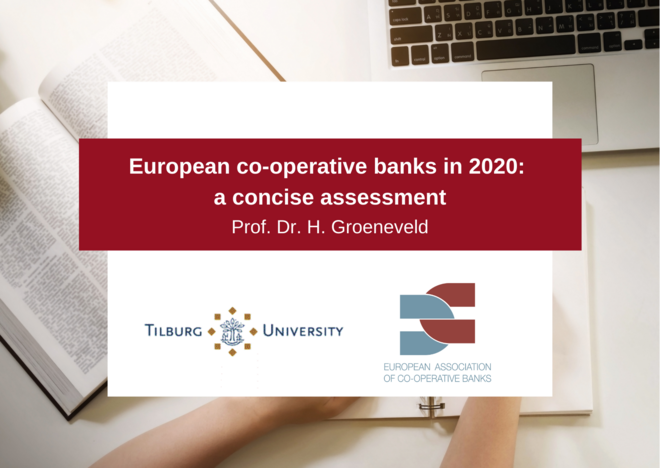Abstract
This snapshot offers a first, preliminary view of the economic and financial impact of the covid-19 crisis on 18 European co-operative banking groups on the one hand, and all their banking competitors on the other. One take-away is that all categories of banks have – so far – weathered the pandemic rather well financially. However, there are differences in the extent to which and the way in which co-operative banks and all other banks were impacted. Before highlighting the financials, it is relevant to point out that the membership base grew by 1.2 per cent to 87 million in 2020. Measured by domestic market shares, co-operative banks further strengthened their market position in their home markets in 2020. The sharp rise in the branch market share stood out and was due to many branch closures by other banks (8.5%). The average Tier 1 ratio of co-operative banks jumped by 0.7 percentage point to a record level of 16.6. Their cost-to-income ratio remained unaltered at 64.2, whereas this metric decreased slightly to 62.4 for all other banks. The average return on equity of both co-operative banks and all other banks fell by 2.2 percentage points to 4% and 3.6, respectively. Also in the pandemic year, notable growth differences in both loans and deposits persisted between co-operative banks and the entire banking sector. Although loan growth of co-operative banks decelerated to 4.5%, it was still well above the long-term average loan growth of around 3.5% and exceeded loan expansion of the whole banking sector by almost 3 percentage points (1.7%) in 2020. Bank savings soared as a flipside to the downturn in consumption and investment. Co-operative banks and all other banks experienced deposit growth of almost 10% and 8%, respectively.
Author
Prof. dr. Hans Groeneveld is Professor of Cooperative Financial Services. He studied quantitative macroeconomics at the Erasmus University Rotterdam and a PhD in the monetary economy at the University of Maastricht. His professional career began at the CPB in the department Labour and Social Security. He then worked for over ten years at De Nederlandsche Bank in the monetary respectively supervision directorate. Currently he is also Associate Director Cooperative & Control at Rabobank. There he is involved in strategic and organizational projects. He represents Rabobank in many networks in the national and international cooperative world. Previously, he held various senior and management positions at Rabobank. He was Senior Consultant Corporate Strategy, Dep. Chief Economist, Head of SME Sector Management and Director of International Services.
Prof. dr. Groeneveld is a board member of the International Raiffeisen Union in Germany, member of the think tank of the European Co-operative Banks in Brussels, member of the Scientific Committee of the European Research Institute on Cooperative and Social Enterprises in Italy, and the Co-operative Business Education Consortium in Canada. He has published extensively on monetary policy, banking, cooperative banks and strategic and organizational issues in academic and policy journals.


